
Scott Lab
@pscottlab
We are a lab at University of Pennsylvania @pennvet investigating host-pathogen interactions.
ID: 1197491867316817920
21-11-2019 12:28:38
185 Tweet
782 Followers
77 Following


Being Dr. Alan Sher's scientific granddaughter is a real privilege and honor. Today I had the opportunity to hear again what I've been learning from Scott Lab over the years: "The parasites teach us a lot about immunology." at Marine Biological Laboratory (MBL) BiologyofParasitism WHIP
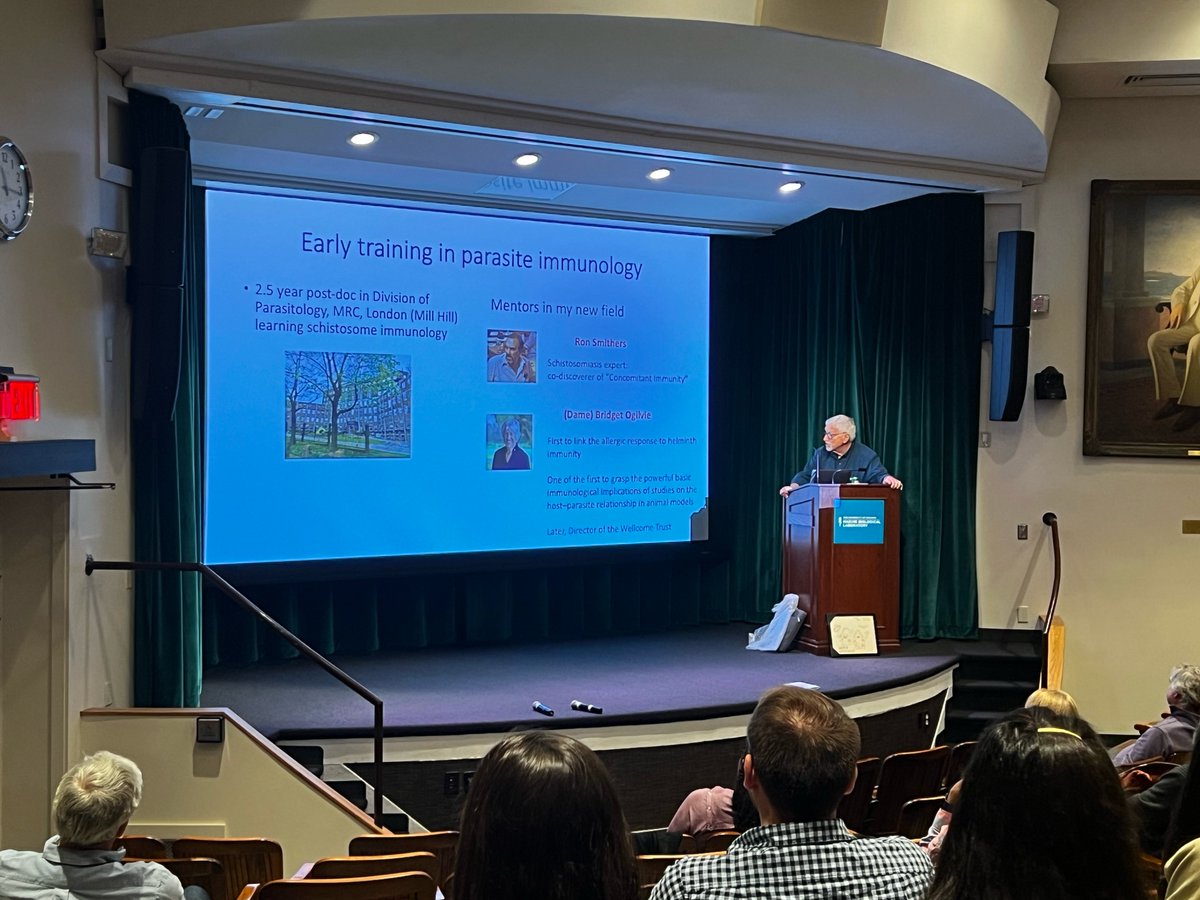

A great meeting for our family of immuno•parasitologists at the Woods Hole Conf 2023 🦠🪱 I got awards for our current study! @novaislab Scott Lab #DrAlanSher BiologyofParasitism Tej Pratap Singh @LovinsTori #DrElizabethGrice WHIP #Immunology #parasites #microbiome #science


ok ICIS 🦋 @cytokinesociety.bsky.social members The American Association of Immunologists (AAI) stop by booth and learn about the annual meeting in Athens
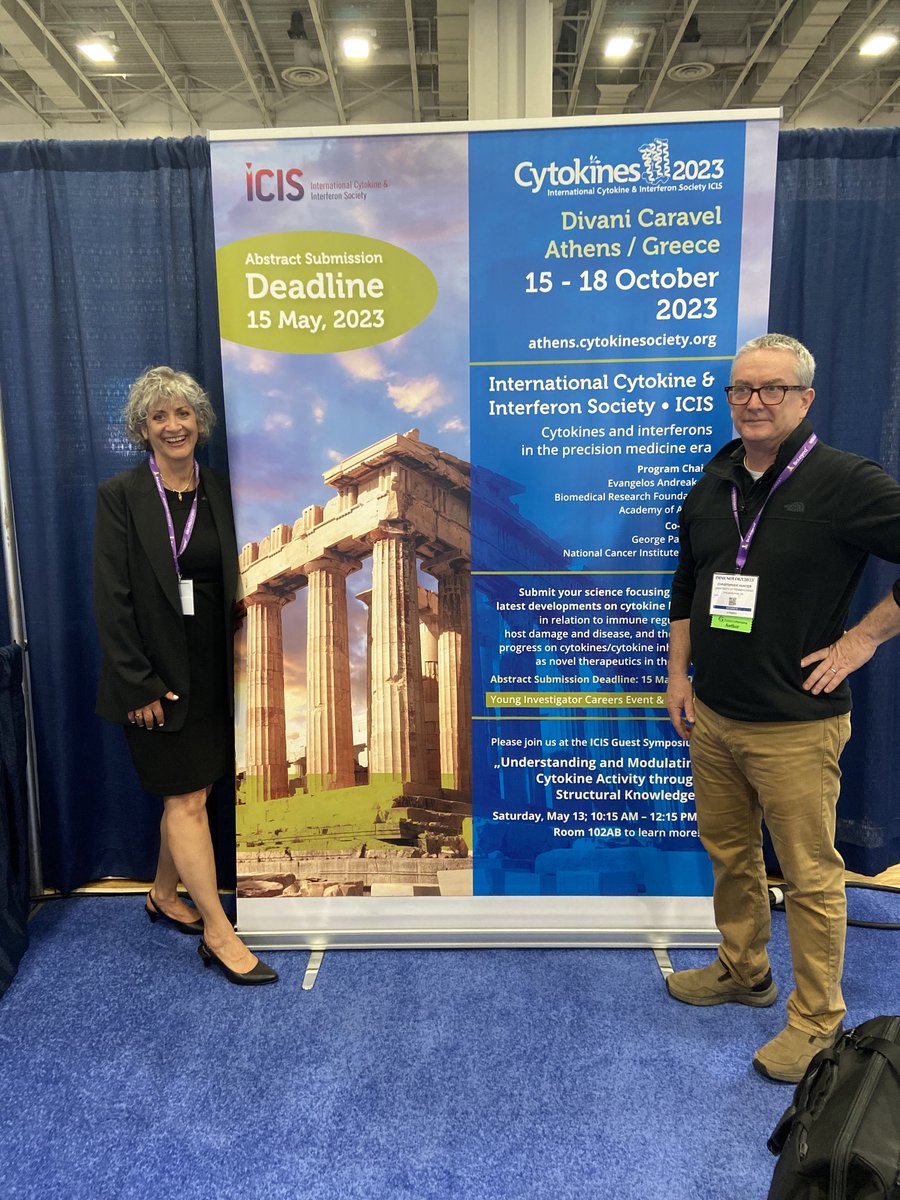

Looking to study parasites for your PhD training? Join us a Penn! Great breadth cell biology, genomics, immunity, drug and vaccine development. Great labs & environment! ChrisHunter Yi-Wei Chang Audrey Odom John MD PhD DeBroski Daniel Beiting PoveLab Omar Harb 🍉 Scott Lab David Roos


Led by Tej Pratap Singh, collab with Camila Farias Amorim, Ph.D, @LovinsTori , Charles Bradley, Carvalhos labs and Elizabeth Grice 🧫 #translationalresearch #infectiousdiseases #inflammation #immunology #Tcell #bacteria #parasite #omics #DualRNAseq #datascience #datamodeling #clinicaloutcome

Insights from Mihalis Lionakis: Mibrobial dysbiosis worsens cutaneous leishmaniasis. Tej Pratap Singh, Scott Lab et al (bit.ly/3MgOlen) show that Rorγt+ regulatory T cells suppress pathogenic IFN-γ responses to control Staphylococcus aureus growth bit.ly/48Y7iMy
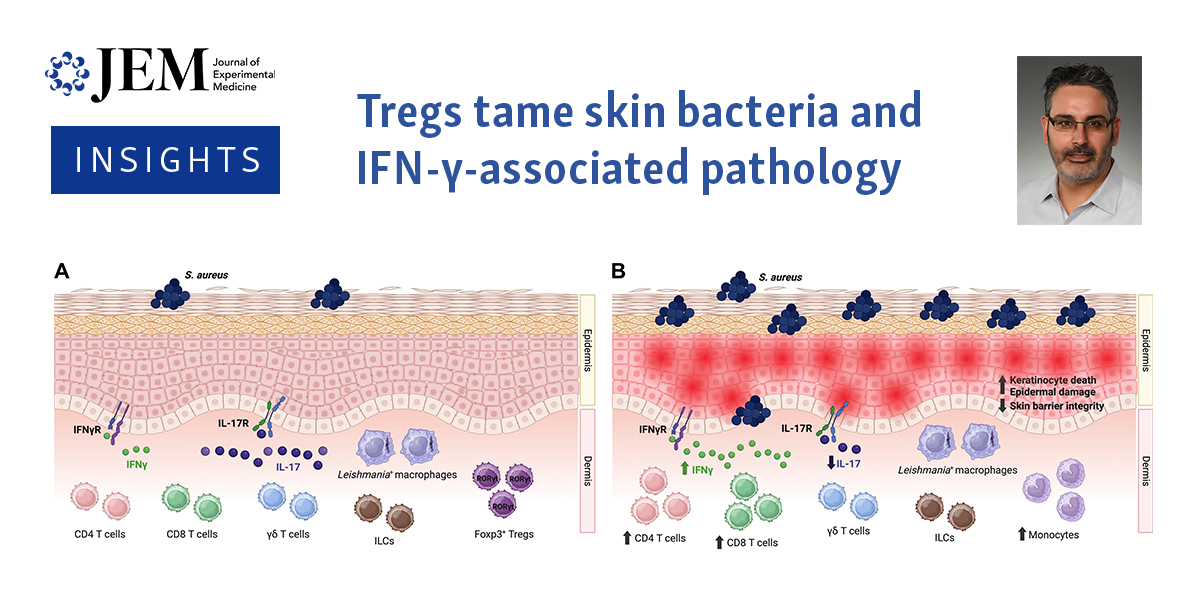

Insights Journal of Experimental Medicine by Mihalis Lionakis: Mibrobial dysbiosis worsens cutaneous leishmaniasis. Tej Pratap Singh, Scott Lab et al (bit.ly/3MgOlen) show that Rorγt+ regulatory T cells suppress pathogenic IFN-γ responses to control Staphylococcus aureus growth bit.ly/48Y7iMy
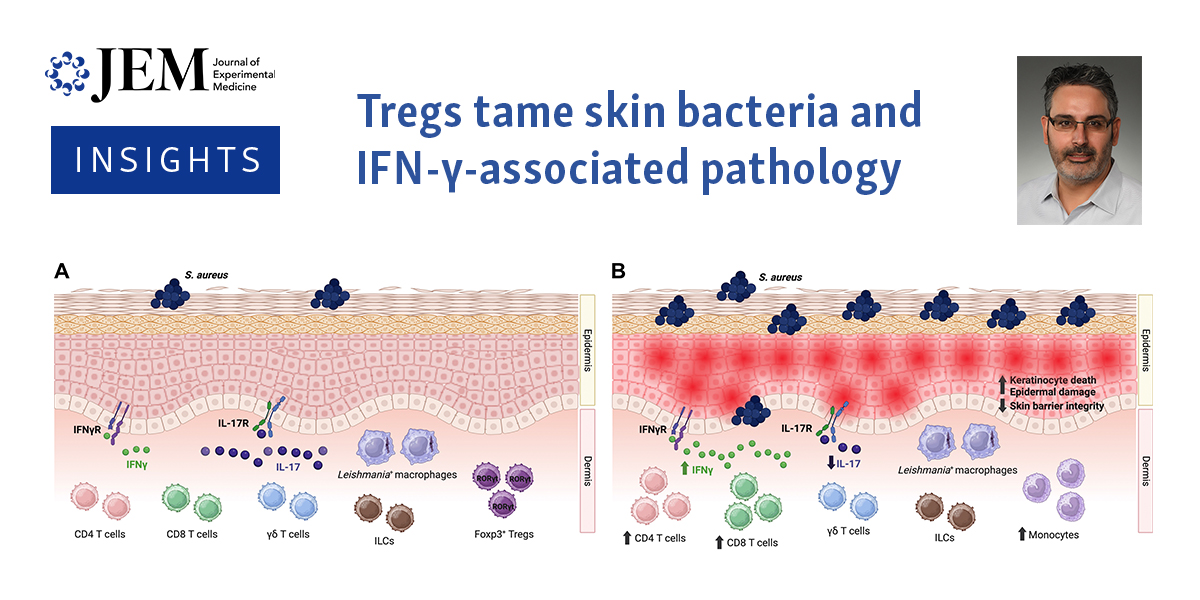

We appreciate immensely the Mihalis Lionakis, for your insights on our recent work showing that Foxp3+ Rorγt+ Tregs suppress pathogenic IFN-γ responses to control S. aureus growth Tej Pratap Singh Scott Lab #eGrice

Regulatory T cells control Staphylococcus aureus and disease severity of cutaneous leishmaniasis, say Tej Pratap Singh Tej Pratap Singh, Phillip Scott Scott Lab and colleagues Penn Vet Penn Medicine: bit.ly/3MgOlen #InfectiousDisease #HostDefense
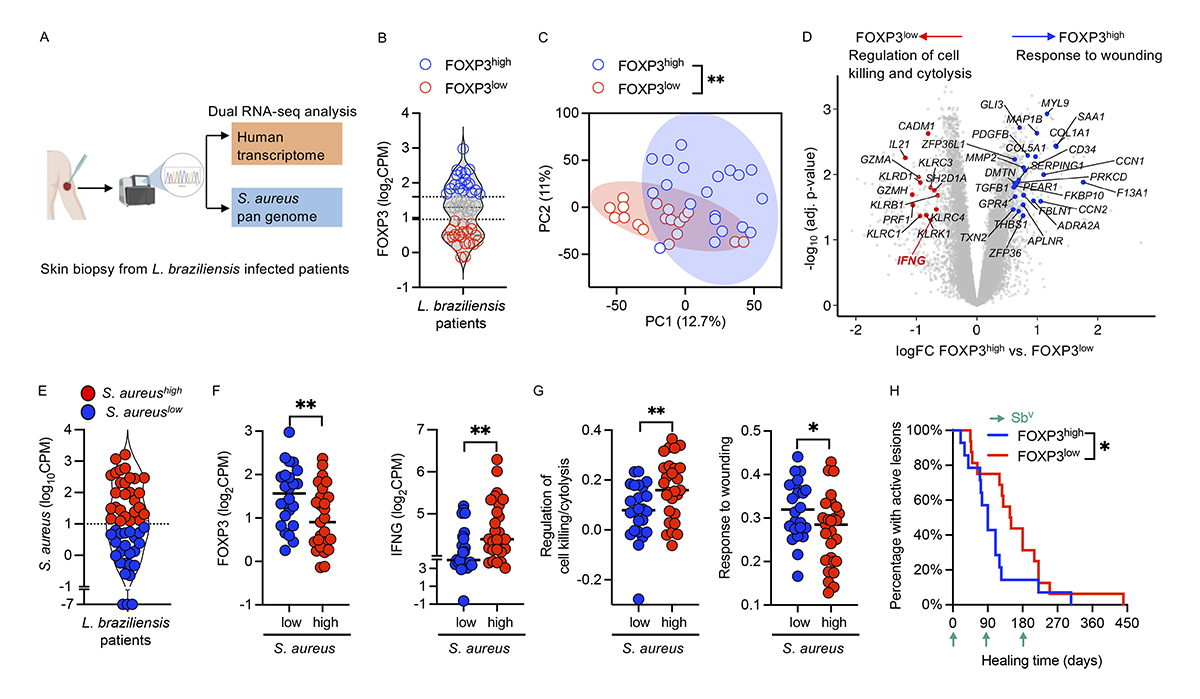

Tregs tame skin bacteria and IFN-γ-associated pathology. Michail Lionakis Mihalis Lionakis NIAID News discusses recent study from Tej Pratap Singh, Scott Lab et al (bit.ly/3MgOlen) in new Insights: bit.ly/48Y7iMy #InfectiousDisease #HostDefense #Tolerance
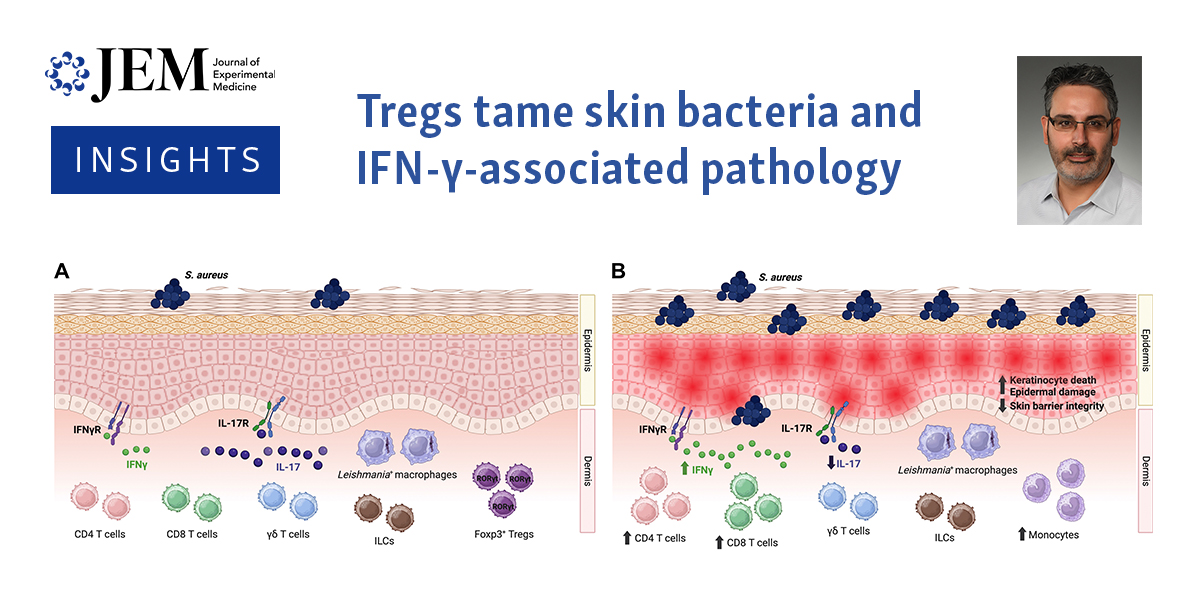

We highlight how the human microbiome can shape disease outcomes in cutaneous leishmaniasis and suggest pathways toward host-directed therapies to mitigate the inflammatory consequences. Nice work Camila Farias Amorim, Ph.D Microbiome and You @RNAseq Immunology science.org/doi/10.1126/sc…

A #translational study evaluating the role of #skin #microbiome in driving IL-1b #immunopathology in a parasitic infection, cutaneous #leishmaniasis. Daniel Beiting Tej Pratap Singh @novaislab @LovinsTori Scott Lab @HarrisOnTheSkin #eGrice science.org/doi/10.1126/sc…


Findings by Tej Pratap Singh Scott Lab and colleagues Penn Vet Penn Medicine have clinical ramifications for cutaneous leishmaniasis and other skin diseases associated with a dysregulated microbiome when Tregs are limited or dysfunctional. bit.ly/3MgOlen #InfectiousDisease
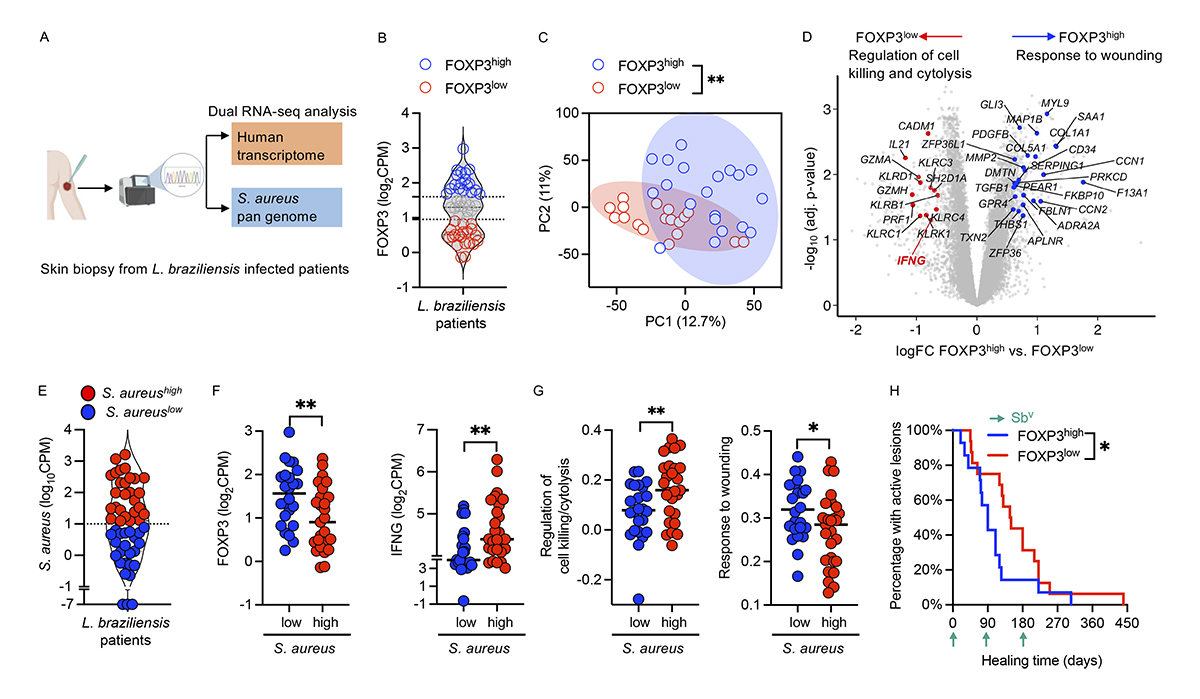

Insights: Michail Lionakis Mihalis Lionakis NIAID News discusses study from Tej Pratap Singh, Scott Lab et al. (bit.ly/3MgOlen) showing that Rorγt+ regulatory T cells suppress pathogenic IFN-γ responses to control Staphylococcus aureus growth: bit.ly/48Y7iMy


